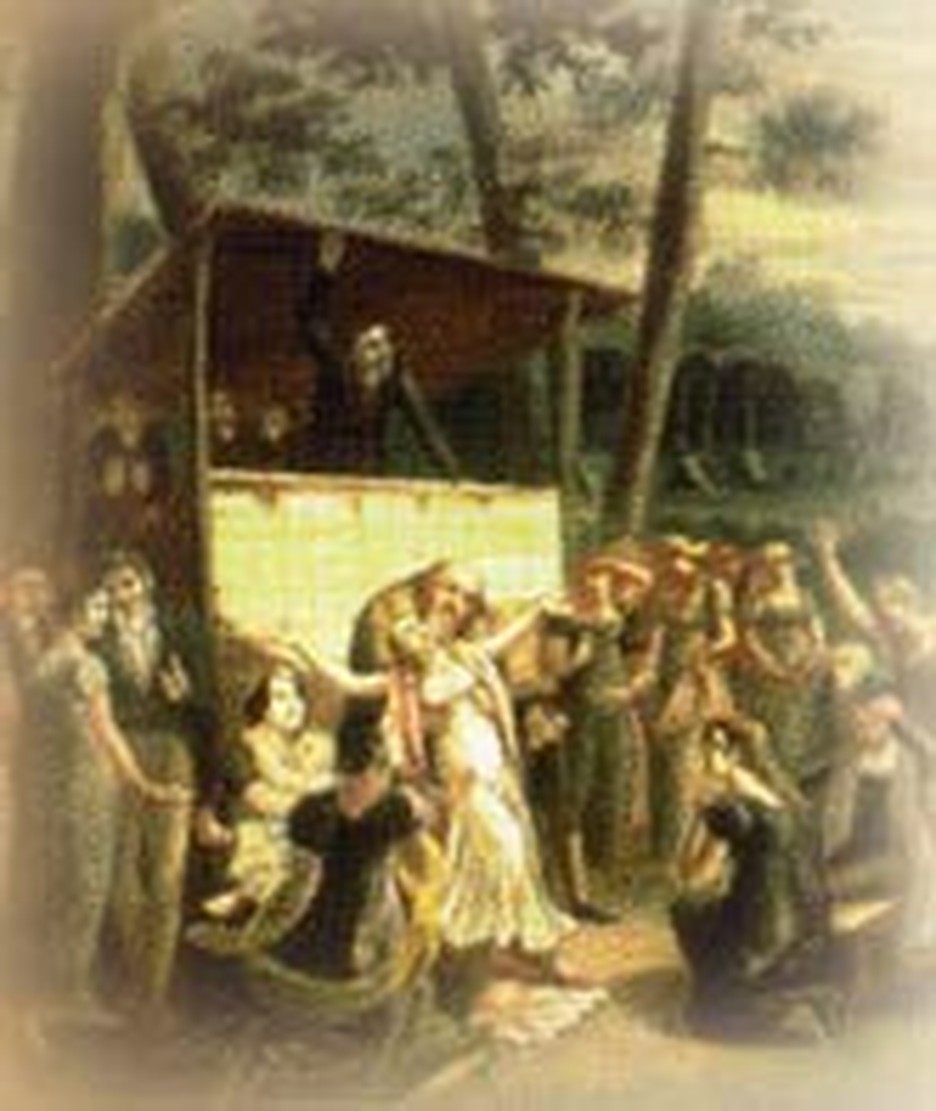
Some have acclaimed it as the greatest hymn ever written! One soldier would have good reason to agree. Some years after the Civil War old soldiers from both the Union and Confederate armies met together. A former Confederate told how he was sent to pick off an exposed Union sentry. As he aimed his gun at the sentry, he heard him singing, "Jesus, Lover of My Soul."
The Confederate didn't care if the sentry was a Union enemy or not; he just couldn't shoot, and lowered his gun. An old Union soldier stood up and asked if that happened in the Atlanta Campaign of 1864. It had. The old Union man said he was that sentry. He told how he had been depressed and fearful when assigned to the isolated sentry post and had begun to sing the hymn to keep his courage up, little realizing how it had saved his life.
How did Charles Wesley come to write this hymn? One story is that Charles was returning to England in the fall of 1736 after serving as Governor Oglethorpe's secretary in the new colony of Georgia. A frightening storm arose at sea, and it seemed that the ship would go down with all on board. A frightened bird flew into Wesley's window during the storm and sought safety and protection in the folds of Wesley's coat! Another account says that the hymn was written when an angry mob drove Charles and John from the place they were preaching. Charles was beaten and composed the hymn while hiding under a hedge.
Charles' brother John did not like "Jesus Lover of My Soul" when he first read it; he thought it was too sentimental! The hymn didn't really become popular until after Charles Wesley's death.
DISTANT DATELINE: Emperor Julian Slain in Battle in Persia; Efforts to Restore Paganism Now Jeopardized
Word has just been received that Emperor Julian was slain by a spear thrust into his abdomen in battle against the Persians. He was only 32-years-old and had reigned for only two years.
As he lay dying he reportedly exclaimed: "You have conquered, O Galilean," apparently a reference to Jesus Christ, founder of the Christian movement. Julian had valiantly attempted to overcome the influence and power of the Christians in the Roman Empire--a force that has been steadily increasing since Constantine embraced that offshoot of Judaism some 50 years ago.
With strong support from the more educated classes, Julian determined to restore our traditional pagan religions to supremacy. He ordered destroyed temples rebuilt and new temples constructed, and he encouraged the development of a qualified pagan priesthood. He saw to it Christians were removed from teaching positions where they did not believe and accept the writings of our historic authors. In an apparent move against the Christians he also ordered the rebuilding of the Jewish temple in Jerusalem, a project that has been mysteriously defeated by the outbreak of repeated fires at the site.
Court observers were fascinated by Julian's zeal against the Christians because he had been brought up as a Christian, was baptized, and even ordained a lector in the church. But as he matured he apparently discovered that his predecessor to the throne, the supposed "Christian" Constantius (the son of Constantine) had killed off all of Julian's family for political reasons. Julian alone escaped. He was a child at the time and was saved by Christian clergy.
Julian studied several pagan religions and considered them a living and vital force and the true religious heritage of the empire. But taking a page from his Christian past he urged the pagans to show more care and compassion for the poor and needy, noting that the Christians cared not only for their own poor but for the pagans as well.
With his untimely death, the Christians are already clucking that God has exercised judgment upon the one they called "Julian the Apostate." Meanwhile pagans of many religions grieve over the loss of what was seen as our golden moment to regain lost ground.








